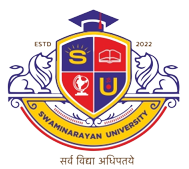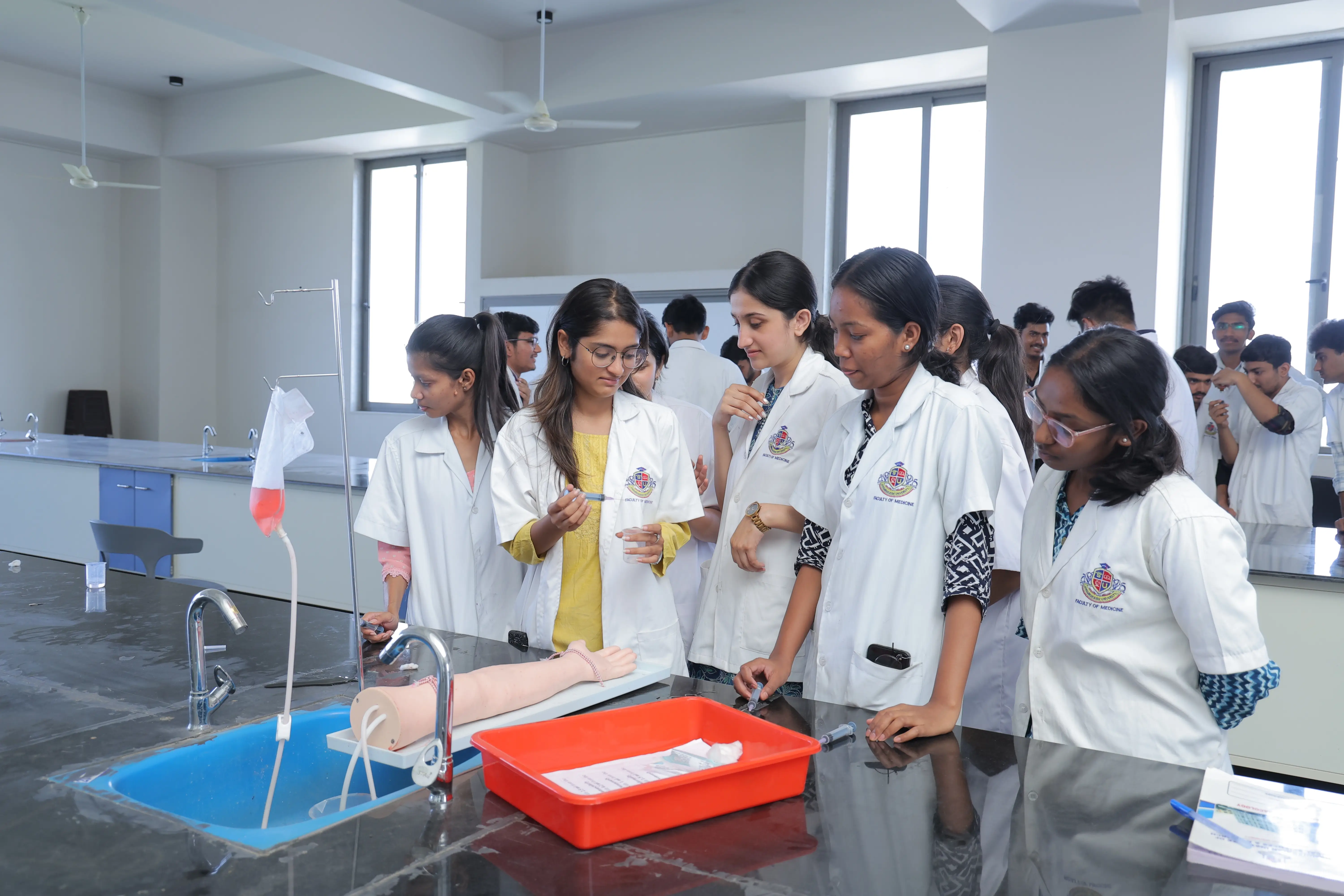

 About Pharmacy
About Pharmacy
The Swaminarayan University, the Faculty of Pharmacies at Kalol is dedicated to skill in drug education, research and health education. The college mixes academic hardness with clinical and industrial risk, and prepares students for a successful career in pharmacies, drug research, diagnostics and health support systems.
Swaminarayan University B.Pharm, Pharm D, M.Pharm (Pharmaceutics), m.pharm (Pharmaceutical Quality Assurance), M.Sc. Offers a wide range of programs included. In pharmaceutical analytical chemistry, mlt and para-medical sciences. These courses are designed to meet global health care standards and developed industry needs.
Students gain a deep understanding of drug construction, quality control, diagnosis, patient care and laboratory through learning in the classroom, practical laboratories, clinical visits and an integrated approach to industrial risk.
The goal of the programs is to develop professionals with strong scientific knowledge, moral values and skills for pharmaceutical innovation and health services.

Health services and pharmaceutical sectors are among the fastest growing areas, offering high job security and development.
These programs provide an opportunity to improve the patient's life directly through research, diagnosis and medicine.
A pharmacy or paramedic degree endows you with relevant transferable skills for hospitals, research laboratories, production industry and regulatory bodies.
Students become part of the health system's ecosystem that contributes to drug safety, medical efficiency and public health.
Choosing these programs means choosing a complete, scientifically run career with purpose and capacity.
 Course(s) Details
Course(s) Details
Swaminarayan University offers students advanced, easy-to-understand, comprehensive, student-friendly study material. This material can be accessed online.
Interns and training with hospitals, pharmaceutical industries, clinical laboratories and research centers.
Participation in national and international seminars, Pharma exhibitions and workshops to learn on hands.
Career path in clinical pharmacy, drug safety, quality control, R&D, diagnostics, regulatory conditions and health services.
Fee Regulation for 50% Seats: As per NMC guidelines, 50% of seats in private medical colleges and deemed universities should have fees at par with government medical colleges in the respective state. This regulation aims to make medical education more affordable and is applicable to students admitted under government quota seats.
Implementation: The benefit of this fee structure is first available to candidates who have availed government quota seats. If the government quota seats are less than 50% of total sanctioned seats, the remaining candidates would avail benefits of the fee equivalent to the government medical college fees, based purely on merit.
1) Learn from a qualified faculty of academic and industrial expertise in pharmaceutical science.
2) Access to advanced laboratories for drug production, analytical chemistry and clinical training.
3) Regular contact for real practices through clinical training, hospital trip and industrial tourism.
4) Build a strong foundation in pharmacology, pharmaceutical technology, patient care and laboratory diagnosis.
5) Get guidance for competitive survey, licenses and global opportunities in pharmacies and health sciences.
6) Develop skills for modern health environments including digital pharmacies and research equipment.
7) Career opportunities opened in Pharma Industries, hospitals, R&D laboratories and state sectors.
8) Be part of a profession that has a direct impact on the patient's health, drug security and public welfare.